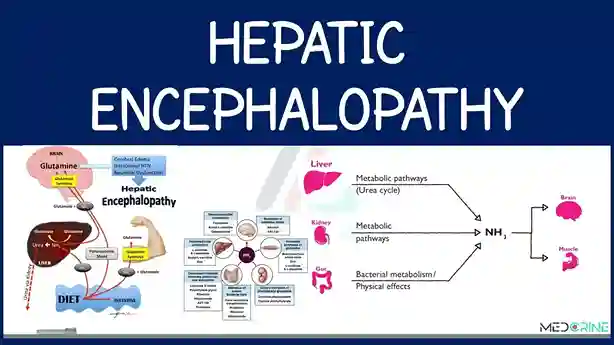Encephalopathy Definition
Encephalopathy is a term for brain disease or disorder. Not just one type of disease, but this condition is described as brain dysfunction. Most encephalopathies cannot be cured. Fast and appropriate treatment can help control symptoms to cure the disease. Therefore, the effectiveness of treatment steps can be increased by diagnosis at the beginning of the appearance of symptoms.
Symptoms of Encephalopathy
Encephalopathy can be experienced by anyone regardless of age and causes various symptoms. The main symptoms are changes in mental conditions that generally include loss of concentration, impaired coordination of movement, and loss of the ability to think to decide something.
Changes in mental state can occur slowly and gradually or drastically and in a short time. Other clinical symptoms or signs, for example:
- Convulsions.
- Tremors.
- Muscle weakness in one part of the body.
- Difficulty swallowing or speaking.
- Twitching body parts.
- Coma.
Causes of Encephalopathy
Brain disorders can be caused by various factors and conditions. Here are some types of encephalopathy based on their causes:
- Traumatic encephalopathy is caused by injury or trauma to the brain.
- Glycine encephalopathy is triggered by high levels of glycine in the brain.
- Hashimoto’s encephalopathy occurs because the thyroid gland is attacked by the immune system.
- Hepatic encephalopathy caused by liver disease.
- Hypertensive encephalopathy due to hypertension.
- Encephalopathy due to lack of oxygen in the brain.
- Uremic encephalopathy caused by kidney failure.
- Lyme encephalopathy which is the spread of tick and bacterial infection, causing complications from Lyme disease.
- Static encephalopathy due to permanent brain damage. This condition occurs due to the brain being deprived of oxygen. For example, in fetuses exposed to alcohol.
- Toxic metabolic encephalopathy caused by toxins, infections, or organ failure.
- Infectious encephalopathy caused by a protein-based infectious substance called a prion, this substance can progressively attack the brain.
- Wernicke’s encephalopathy due to vitamin B1 deficiency.
Risk Factors for Encephalopathy
Encephalopathy has various risk factors, including:
- A hard blow to the brain often experiencing a hard blow to the brain, and increases the risk of someone having encephalopathy. This is caused by trauma or injury that occurs to the brain due to damage to the brain.
- Toxic substances such as drugs, people who use drugs, or consume other toxic substances, are at risk for developing encephalopathy.
- Unhealthy food or junk food , the implementation of a healthy diet and lifestyle must be done to prevent encephalopathy. People who consume unhealthy food or excessive junk food have a higher risk of developing encephalopathy. The reason is, junk food can cause damage and disease in some organs of the body if consumed excessively.
- Excessive alcohol consumption can cause liver damage and be one of the causes of encephalopathy, namely hepatic encephalopathy.
Diagnosis of Encephalopathy
Diagnosis of encephalopathy can be done through blood tests, spinal cord examinations, and imaging projections using CT scans or MRIs. In addition, the use of electroencephalograms to examine electrical wave activity in the brain can also be done.
Encephalopathy Treatment
There are various treatments depending on the cause of encephalopathy. Starting from giving medication, to surgery according to the type and trigger. If the cause of encephalopathy is a brain lacking oxygen, the recommended treatment step is oxygen therapy. While if kidney failure is the cause of encephalopathy, kidney transplant surgery is generally needed to overcome the disease.
Complications of Encephalopathy
Encephalitis can damage the brain and cause long-term problems or complications as follows:
- Memory problem.
- Changes in personality and behavior.
- Speech and language problems.
- Inability to swallow.
- Convulsions.
- Emotional and psychological problems, such as anxiety, depression, and mood swings.
- Loss of concentration, planning and problem solving.
- Lack of coordination, balance, and movement.
- Constant fatigue.
Encephalopathy Prevention
Prevention of some cases of encephalopathy can be done with simple steps. For example, encephalopathy due to kidney failure, metabolic, or hypertension can be avoided by implementing a healthy and balanced diet, stopping drinking alcohol, exercising regularly, and undergoing regular health checks.

